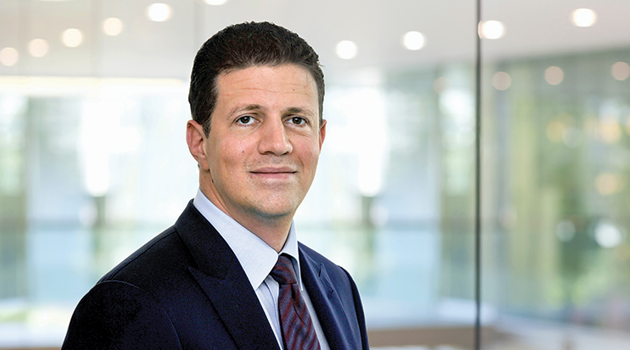Majid Jafar, the CEO of Crescent Petroleum, has called on global business leaders to place young people at the center of the post COVID-19 economic recovery by supporting initiatives to empower them with new skills and prepare them for the new job market.
While millions of jobs have been lost all around the world, young people who are starting their careers bear the heaviest burden from COVID economic impacts as their careers and aspirations are delayed, he added.
Jafar made his comments on the virtual panel entitled “Delivering the Reskilling Revolution” on the opening day of the World Economic Forum’s virtual summit meeting “The Davos Agenda” held this year from 25th-29th January in place of the annual Davos Summit usually held this week in the town of Davos in Switzerland. More than 1,500 business, government and civil society leaders from over 70 countries will meet online to set the agenda for the important year ahead.

“The COVID-19 pandemic has left tens of millions of people without work, but it has had an outsize impact on young people beginning their careers and entering the job market for the first time,” Jafar said. “It has never been more important to put youth unemployment at center stage as we look to build a resilient and lasting recovery, going beyond just protecting lives but also enhancing livelihoods. We must all join together to tackle youth unemployment with improved training and better preparation of young people for work.”
A survey by the International Labour Organisation found that one in six young people have stopped working since the onset of the COVID-19 pandemic, while nearly half reported delay in their studies. The resulting impacts of these challenges will have tremendous consequences on young peoples’ earnings, their career trajectories and the economies of nations.
“Successful companies and business leaders must present real and immediate solutions to help retrain these young people to harness their talents and present them with a path forward. We must all work together to ensure these efforts succeed, for the sake of the next generation,” said Jafar, who is a signatory to the World Economic Forum’s Principles of Stakeholder Capitalism for the Middle East and North Africa.
Jafar was joined on the virtual panel by Ryan Roslansky, Chief Executive Officer of LinkedIn, Asheesh Advani, President and Chief Executive Officer of JA Worldwide, and Mariéme Jamme, Founder and Chief Executive Officer of iamtheCODE.
In his remarks to the Davos summit, Jafar also highlighted the success of the Crescent-sponsored Edraak Career Readiness programme, a three-part online employee preparedness and soft skills course that has seen more than 270,000 young people in the MENA region register to learn English language, basic computer skills, and general office skills. The course was launched at the start of the outbreak of COVID-19 and has continues to receive considerable attention from young people.
The Edraak Career Readiness programme is a Massive Open Online Course (MOOCs), offering free and open online courses that aim to boost the employability skills of young people across the MENA region. The programme’s goal is to train 500,000 young people with skills not necessarily taught in school or university but which are critical to getting ahead in the new world of work. The programme continues to accept registrations free of charge and aims to prepare young prospective job seekers in the basics of communicating and working in the modern workplace.
Jafar said online courses like this can be replicated to deliver immense value to young people and empower them with new skills.
“Industry research has long highlighted that the single biggest impediment to youth employment is a lack of basic skills in key areas required for today’s job market, and that challenge has only grown over the past year. We are committed to play our role in boosting the employability skills of half a million young people across the region,” he concluded.












